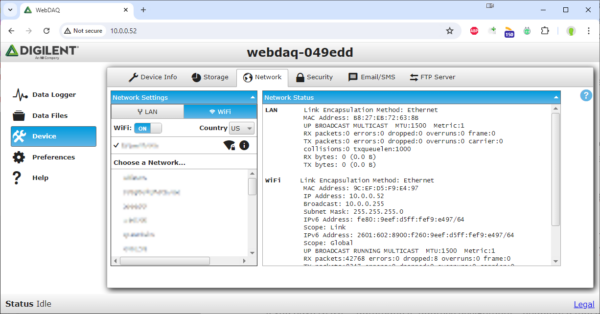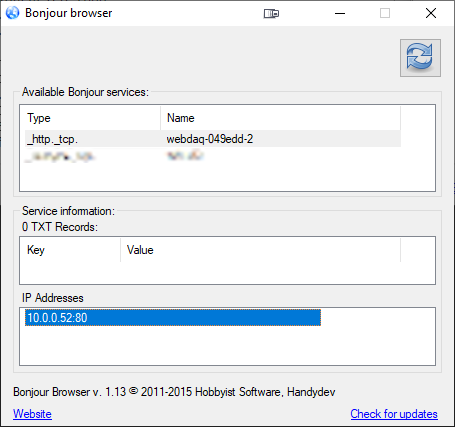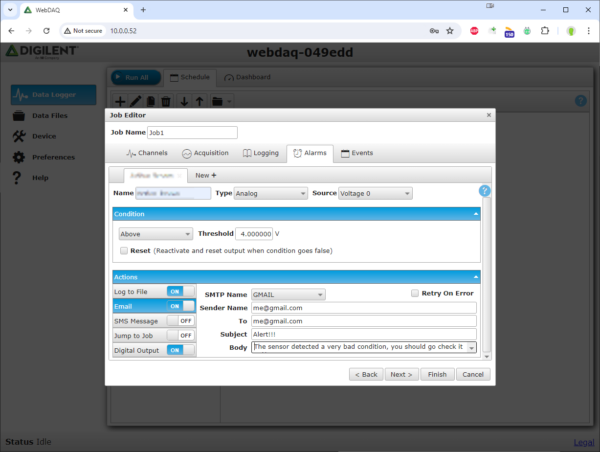Digilent recently released updated versions of the WebDAQ 316, 504, and 904. These devices are internet-enabled dataloggers, capable of logging data from a variety of sensors like thermocouples, IEPE accelerometers, and many more. They are set up for remote access from the local network – whether from a computer, cell phone, or tablet. 
Why use WiFi?
WiFi is particularly useful in applications where using a PC isn’t possible or necessary, or when Ethernet cables are cumbersome to route into or out of the datalogger’s location. If you need multiple loggers for a large number of sensor inputs, it’s much easier to connect an extra logger over WiFi than it is to route an additional Ethernet cable, especially when considering the additional hardware you might need like switches or extenders. If you want to move a logger to a different location, it’s a lot easier when you’re already set up with WiFi than if you also need to move all that cabling.
How do I set up WiFi?
Setting up WiFi is super easy – once you have an initial wired connection set up, all you need to do is plug in a supported USB WiFi adapter and connect to the WiFi network using the WebDAQ’s intuitive browser interface.
If you have DHCP – automatic IP address assignment – enabled, a tool like Bonjour Browser can be used to quickly find the WebDAQ’s IP address without the need for a wired connection. Complete instructions, and more tips and tricks for networking in various network configurations, can be found in the User Guide or Web Help FAQ for your particular WebDAQ model, located on our Reference site.
On top of basic connectivity, job scheduling, and viewing of downloaded data through the browser interface, the WebDAQ can also be configured to automatically send a text message or email when specific conditions occur in logged data. Alarms can also be used to set a digital output, for more complex system designs.
What adapters are supported?
When we released the new Digilent WebDAQs, we also did some additional testing and added several new WiFi adapters to the list of compatible WiFi adapters on our Reference site. The list of supported adapters ranges from those that are available for as little as five dollars, to those with complex multiple-antenna setups for operation at relatively long ranges – across the 20 tested and supported USB WiFi adapter models, you should be able to find something that fits your specific needs.




